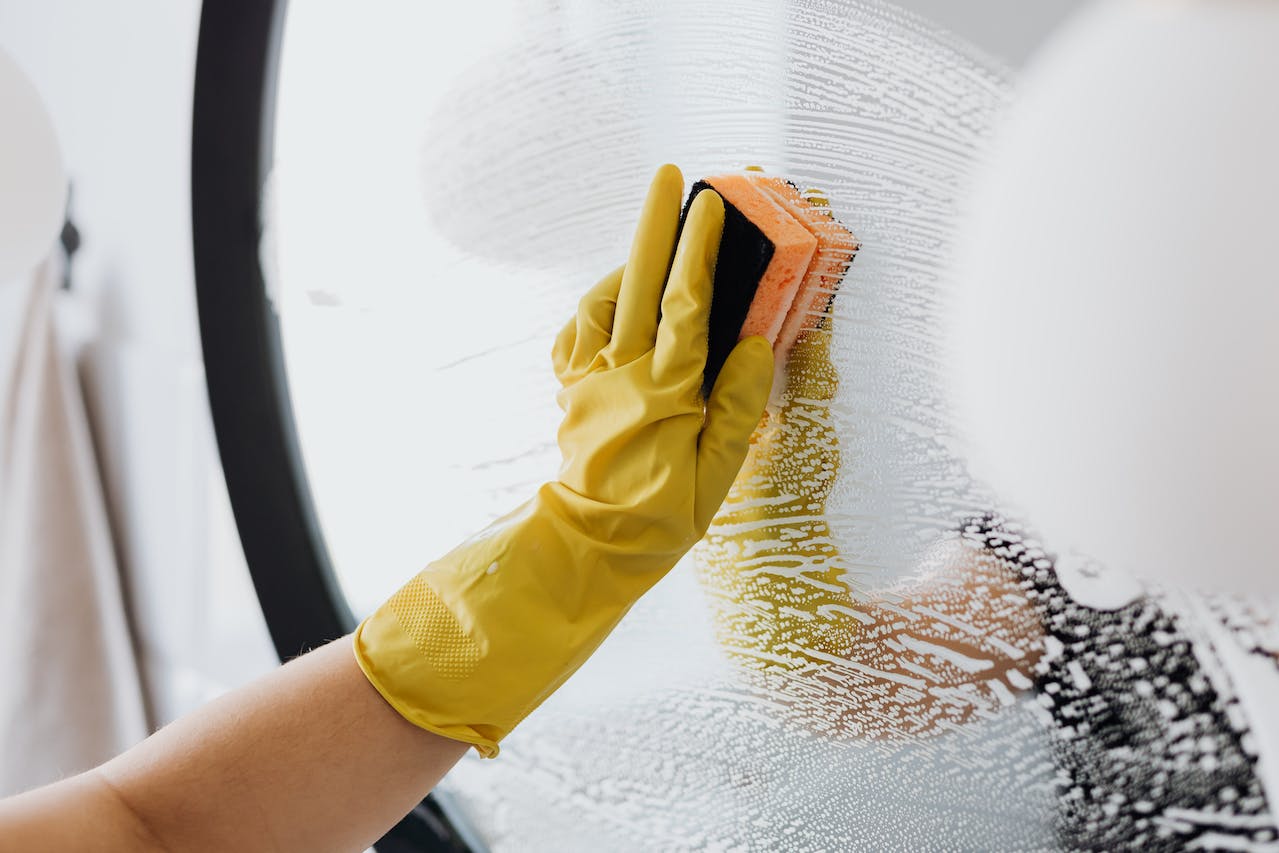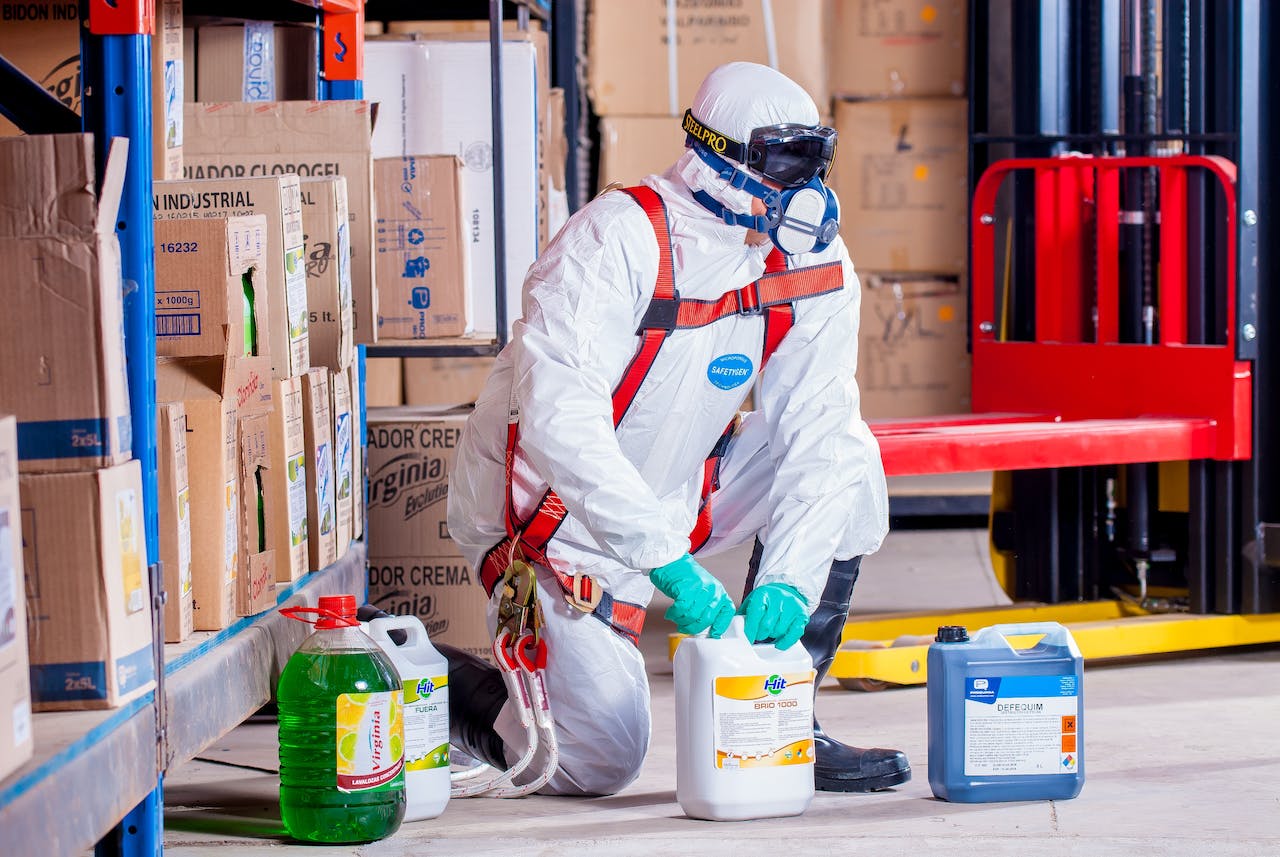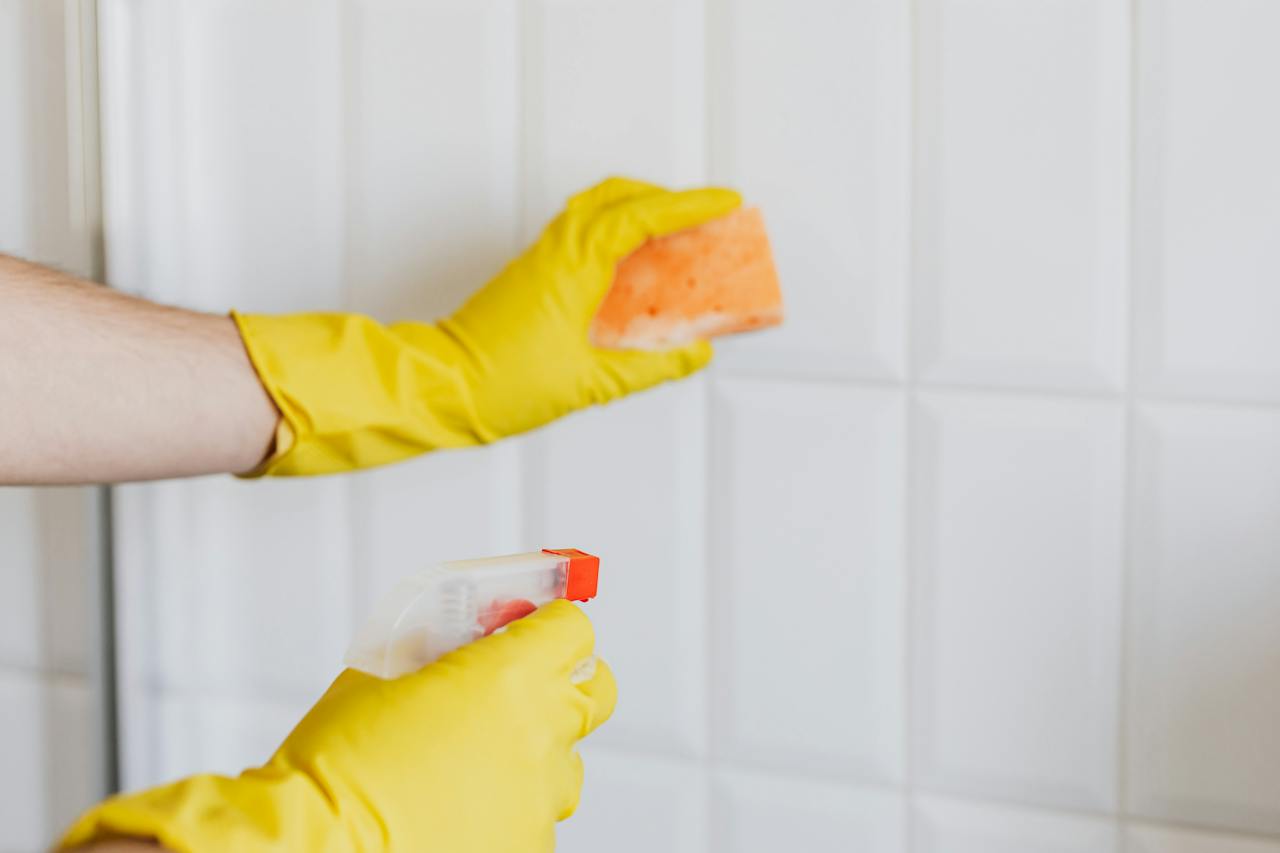
Cleaning business insuranceis a critical component of ensuring the stability and protection of your cleaning services company. Whether you operate a small residential cleaning businessor manage a large commercial cleaning operation, having the right insurance coverage is essential. In this article, we will delve into the intricacies of cleaning business insurance, shedding light on the various types of coverage available and their significance in safeguarding your enterprise.
Cleaning businesses face a unique set of risks and challenges due to the nature of their work. From accidental damage to a client's property to slip-and-fall accidents involving employees, unforeseen incidents can lead to significant financial liabilities. That's where cleaning business insurance steps in. It serves as a safety net, providing financial support and protection when the unexpected occurs.
Throughout this article, we will explore the different types of insurance coverage tailored to the cleaning industry, such as general liability insurance, workers' compensation, and specialized janitorial bonding.
What Is Cleaning Business Insurance?
Cleaning business insurance is a type of small businessinsurance that covers a wide range of risks that your industry faces, such as injuries at work, accidents that hurt people or damage their property, theft of equipment, and lost income.
For instance, your cleaning company insurance's liability section will cover medical expenses if one of your employees forgets to post a warning sign on a wet floor, causing someone to fall and sustain injuries.
Who Needs Cleaning Business Insurance?
Cleaning business insurance is a fundamental requirement for a wide range of individuals and entities within the cleaning industry. Whether you operate a small residential cleaning service or manage a large commercial cleaning company, having the right insurance coverage is essential to safeguard your business, clients, and employees.
Here's a detailed breakdown of who needs cleaning business insurance;
Residential Cleaners
Individuals or small cleaning businesses that offer services to homeowners should invest in cleaning business insurance. Accidents can happen in any household, and having coverage ensures that you are financially protected if you accidentally damage a client's property or if someone is injured while you are providing your cleaning services.
Commercial Cleaners
Companies that provide janitorial and commercial cleaning services to businesses, offices, and institutions also require cleaning business insurance. Commercial settings often involve more significant properties and valuable equipment, increasing the potential for accidents or damage. Insurance can help mitigate these risks.
Carpet And Upholstery Cleaners
These specialized cleaning services involve the use of chemicals and equipment that can pose unique risks. Cleaning business insurance tailored to these services can provide coverage for accidents, damage, or injuries related to carpet and upholstery cleaning.
Window Cleaners
Window cleaning often involves working at heights, which increases the risk of accidents. Insurance coverage can protect both window cleaners and their clients from potential liabilities arising from accidents or property damage.
Specialized Cleaners
Businesses offering niche cleaning services such as post-construction cleanup, biohazard cleanup, and mold remediation should invest in insurance policies that cater to their specific needs. These services often come with higher risks and potential legal liabilities.
Franchise Cleaning Services
Many cleaning businesses operate as franchises. While franchise agreements often require franchisees to have insurance coverage, it's crucial to ensure that the coverage is comprehensive and tailored to the specific needs of the cleaning industry.
Independent Contractors
Independent cleaning contractors and sole proprietors should also consider cleaning business insurance. Even if you work alone, accidents can happen, and insurance can protect you from potential legal and financial consequences.
Cleaning Equipment Suppliers
Companies that manufacture or supply cleaning equipment and supplies should have liability insurance to protect against claims related to product defects or injuries caused by their products.
Cleaning Service Managers
If you manage a team of cleaners or subcontractors, having appropriate insurance can protect you from potential liabilities associated with the actions of your employees or subcontractors.
In summary, anyone involved in the cleaning industry, from small residential cleaners to sizeable commercial cleaning companies, can benefit from cleaning business insurance. It provides a safety net, ensuring that your business and clients are protected in the event of accidents, injuries, property damage, or legal claims. It's a wise investment that offers peace of mind and financial security for those in the cleaning business.
What Does Cleaning Business Insurance Cover?
A variety of issues, including harm to your company's assets, unintentional injury costs, and occupational diseases and accidents, are covered by the comprehensive small business insurance that is designed specifically for the cleaning industry.
Starting with a business owner's policy (BOP) is one option. Three fundamental coverage kinds are bundled into a BOP, which is usually less expensive than purchasing each policy type separately.
Insurance For Business Liability
This includes unintentional injury and damage to other people's property. For instance, your general liability insurance will cover the cost of repairs if you unintentionally spill chemicals on a client's hardwood floor. In the event that you are sued following an accident, it also pays your legal expenses.
In addition, this coverage covers additional issues, including copyright infringement, reputational damage, and advertising injury.
Insurance For Commercial Property
Commercial property covers your actual property, such as your structure, furnishings, and equipment, whereas liability safeguards your assets by paying the costs associated with someone else's property. You may still get property insurance for your equipment with lesser limits even if you rent a place.
Generally, policies will replace your stuff at its replacement cost or at its actual cash worth. At the same time, replacement cost covers the expense of replacing the damaged item, and actual cash value pays the market value of the property minus depreciation.
Were you aware? In a BOP, insurance providers often provide a mix of property and liability. Combining these two has a number of benefits, including cost savings and the convenience of having all of your insurance information in one location.
Insurance Against Business Interruption
Service interruption insurance pays for your lost revenue if an issue covered by your policy prevents you from operating your cleaning service for a short time.
For example, business interruption insurance would pay for lost revenue and other costs, like temporarily transferring to a different office site if a tree falls on the roof of your dry cleaning company and you have to close. Another name for business interruption insurance is "business income insurance.
Additional Small Business Insurance Options
A BOP is a solid starting point, but other coverage types are needed for your cleaning company to handle other risks, such as staff injuries and auto accidents. Here are a few other trim company insurance options to think about.
Commercial Auto Insurance
When you drive a truck, van, or automobile for work-related reasons, including delivering cleaning supplies and equipment to a job site, your commercial auto insurance coverage will protect you. Accidents resulting from your job are not covered by your auto insurance policy.
The following are typical insurance kinds that are covered by a commercial vehicle insurance policy;
- Liability for physical harm- If you or a worker causes an automobile accident, this covers unintentional harm to other people.
- Liability for property damage - This includes unintentional property damage brought on by you or a worker, such as backing into a fence on the project site.
- Insurance against collisions - This pays for the price of replacing or repairing your work automobile following an auto collision.
- Comprehensive insurance - This includes replacement or repair costs for your work vehicle in the event of theft, vandalism, flood, fire, falling items, or inclement weather.
- Coverage for underinsured (UIM) and uninsured (UM) drivers - This covers your and your passengers' medical costs in the event that you are hit by a motorist who is underinsured or does not have enough insurance.
- Protection against personal injury - Regardless of who caused the vehicle accident, this pays for your passengers and your medical costs.
Commercial Umbrella Insurance
You should consider getting a commercial umbrella insurance policy if you require additional coverage beyond your general liability insurance. When your business liability insurance is depleted, it begins to operate.
For example, umbrella insurance would pay the $300,000 difference if a customer sued your company for $800,000 in damages, but your liability coverage only covered $500,000.
Insurance For Hired And Non-Owned Vehicles
This policy covers accidental injury and third-party property damage to vehicles used for business purposes by you or your workers.
For instance, this coverage would pay for the other driver's medical costs if you rented a vehicle to deliver cleaning supplies to a job site and ended up causing an accident that injured people.
Janitorial Bond
One kind of surety bond that protects your clients from staff theft is a cleaning bond. Your clients can require your cleaning company's insurance coverage.
Workers’ Compensation Insurance
If a person becomes sick or is injured at work, workers' compensation insurance covers their medical bills, missed wages, and other expenditures (like physical therapy). Most states mandate that you have workers' compensation insurance if you employ one person or more.
How Do You Get Business Insurance In Simple Steps?
You may feel intimidated by the prospect of purchasing business insurance for your cleaning company, but this does not have to be the case.
Nearly half (42%) of small business employers don't offer health insurance, and 29% of small businesses don’t carry any small business insurance. Listed below are the five stages that we have streamlined the procedure into.
First Step
Determine what your company needs. Please take into consideration the sort of cleaning services that you provide, the equipment and supplies that you use, the number of staff that you have, and any other aspects that may affect your company's insurance requirements.
Second Step
Following the completion of an analysis of your company's insurance requirements, it is time to begin looking for different insurance products.
You might begin by obtaining cost estimates from a number of different insurance companies, either directly or via the assistance of an insurance representative. In order to select the best policy for your company, you need to compare several plans and coverage choices, as well as the prices involved.
Third Step
Select a policy that satisfies the requirements of your company as well as your financial constraints after you have reviewed various coverage choices and rates. Make sure that you have a complete understanding of the areas that are covered by the insurance, as well as any limitations or exclusions.
Fourth Step
After making your selection, the next step is to go ahead and buy the insurance. Filling out an application, making a payment for the premium, and obtaining a policy certificate are usually required steps in this process. For your records, you should have a copy of the insurance certificate.
Fifth Step
The policy should be reviewed on a regular basis, particularly after any substantial changes have been made to your company, such as the addition of new staff or the expansion of your services. Ensure that your policy continues to fulfill the requirements of your company by keeping it up to date.
Obtaining the services of an insurance agent prior to selecting a policy is yet another alternative. Before you sign anything, registered agents can assist you in comprehending some of the legal language that is included in insurance contracts they have prepared for you. It is crucial to keep in mind that the majority of agents are engaged in sales because they get a commission from policyholders.
How Much Does Cleaning Business Insurance Cost?
The typical cost of a business owner's policy (BOP) for cleaning business insurance averages around $520 annually, as reported. This translates to approximately $43 per month.
A minority of Insureon clients (16%) enjoy premiums below the $500 mark per year, while the majority (69%) fall within the $500 to $1,000 per year range for their cleaning business insurance. Several key factors influence the premium you pay for your cleaning business insurance.
Size And Location Of Your Business
The size of your cleaning business and its geographical location significantly impact your insurance expenses. Urban businesses often face more significant risks and higher insurance costs compared to their rural counterparts due to varying factors such as population density, traffic, and local regulations.
Policy Types And Coverage Limits
Your choice of policy types and the limits you establish directly affect your insurancepremiums. Opting for comprehensive coverage packages or higher coverage limits can result in increased premium costs due to the expanded scope of protection they offer.
Claims History
The history of claims filed by your cleaning business can influence insurance costs. Frequent or high-value claims may lead to higher premiums, as this suggests a greater level of risk associated with your business operations.
Workplace fires are the fourth most common business insurance claim in America, and the average personal injury sum awarded by juries in product liability claims was over $7 million. (Source: Forbes)
Deductible Amount
The deductible represents the portion subtracted from an insurance claims check before reimbursement. Opting for a higher deductible can help lower your cleaning business insurance premiums. However, it's essential to balance the savings with the potential out-of-pocket costs in case you need to file a claim.
Company Assets
The total value of your business assets, which includes equipment, inventory, and property, has a direct impact on your insurance expenses. Higher asset values generally result in increased premiums because insurers perceive a greater level of risk when higher-value assets are involved.
FAQs About Cleaning Business Insurance
What Does Cleaning Business Insurance Typically Cover?
It covers liabilities like property damage, injuries, and theft related to cleaning services.
Why Is Cleaning Business Insurance Necessary?
It provides financial protection and peace of mind, safeguarding your business from unexpected incidents.
Can Independent Contractors In The Cleaning Industry Benefit From This Insurance?
Yes, independent cleaners and sole proprietors should also consider cleaning business insurance for personal protection and liability coverage.
Conclusion
Cleaning business insurance is an indispensable shield for those in the cleaning industry. It serves as a safety net, ensuring that your business remains financially secure when accidents, property damage, or legal claims arise.
The cost of insurance varies but is a relatively small investment compared to the potential financial losses without it. Whether you're a residential cleaner, commercial cleaning company, or independent contractor, having the right insurance coverage is a prudent choice.
It not only safeguards your business but also instills confidence in clients and allows you to focus on delivering quality cleaning services without the constant worry of unexpected setbacks.




